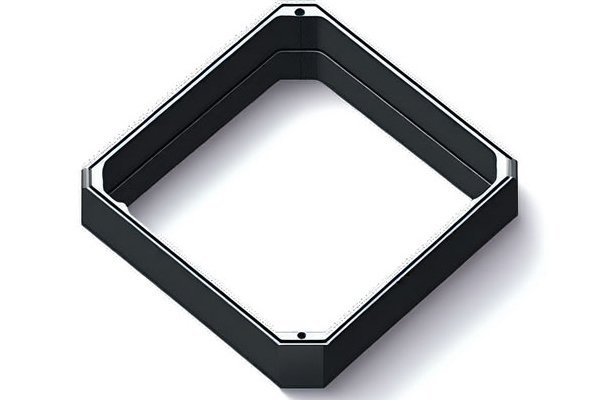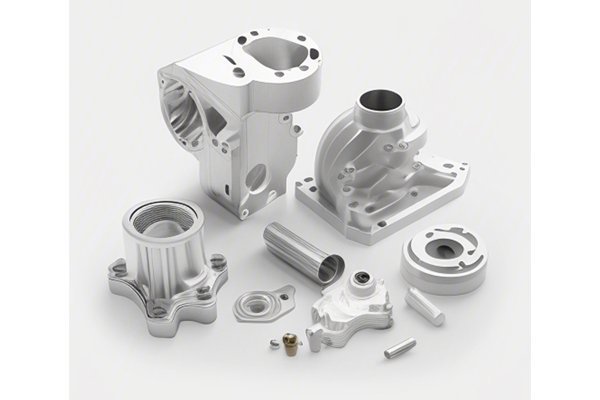Did you know that titanium is one of the most biocompatible metals used in medical devices today? In fact, titanium is often the material of choice for various implants, from joint replacements to dental components, thanks to its unique combination of strength, light weight, and resistance to corrosion. As the demand for high-quality medical devices continues to rise, so too does the need for precise manufacturing methods. Among these methods, CNC (Computer Numerical Control) machining has emerged as a revolutionary solution for crafting titanium medical devices with unparalleled precision and efficiency.
The Value of Titanium in Medical Devices
Before diving deep into the benefits of CNC machining for titanium-based medical devices, let’s take a moment to explore why titanium has become the gold standard in the medical industry.
Titanium is widely recognized for its biocompatibility, meaning it can be integrated into the human body without causing adverse reactions. This property makes it ideal for surgical implants, stents, and prosthetics.
Titanium is incredibly strong and incredibly lightweight. Medical devices made from titanium can provide robustness without bulky weight, making them more comfortable for patients.
Titanium is highly resistant to corrosion, especially in bodily environments that might erode other metals. This ensures longer service life for implants and reduces the likelihood of failure due to material degradation.
—
CNC Machining: A Game-Changer for Medical Manufacturing
CNC machining refers to the process of automating machining tools using computer-controlled programs. The technology has revolutionized manufacturing across various sectors, and in the medical device industry, its advantages become even more pronounced.
One of the most significant benefits of CNC machining is its ability to produce parts with incredibly tight tolerances. For medical devices, where fractions of a millimeter can make a crucial difference, CNC machining ensures that every component fits perfectly into place.
How It Works
CNC machines use computer-aided design (CAD) software to create detailed 3D models of parts. These models guide the machines in carving or shaping titanium into the desired form. This capability allows manufacturers to produce intricate designs that may not be feasible by traditional machining methods.
CNC machining significantly reduces lead times for producing titanium parts. Traditionally, machining processes can take days or even weeks, but with CNC, many steps can be automated, allowing for quicker production cycles.
Time Savings in Manufacturing
With CNC technology, manufacturers can run multiple machines simultaneously and produce parts around the clock. This increased operational capacity means that medical devices can be delivered much faster, responding promptly to urgent medical needs.
The versatility of CNC machining allows for high levels of customization. Whether a device needs to be adapted for a unique surgical procedure or fit the anatomical specifications of a patient, CNC technology can easily accommodate custom designs.
Case Studies in Customization
Consider a dental implant company that wants to adapt its products for a new line of patients with varied bone structures. Using CNC machining, the company can create bespoke titanium implants tailored to individual anatomical requirements.
CNC machining is also highly efficient regarding material usage. The machines can cut titanium with very little waste, maximizing the yield from raw materials. This is particularly important in medical applications, where titanium can be expensive.
Economic Impact
Essentially, the reduced waste translates into cost savings for manufacturers, which can then be passed down to healthcare providers and ultimately patients.
In the medical device industry, quality control is non-negotiable. CNC machining provides numerous checks and balances to ensure that every piece produced meets stringent regulatory standards.
Integrated Quality Assurance
Modern CNC systems often come equipped with real-time monitoring tools that can check tolerances during production. This allows for immediate corrections, reducing the likelihood of defects in the final product.
—
Challenges in CNC Machining Titanium
While CNC machining offers numerous advantages, it’s crucial to be aware of some challenges related to working with titanium.
Titanium is tougher than many other machining metals, which can lead to increased tool wear during the machining process. This can necessitate frequent changes of drill bits and cutting tools.
Solutions for Tool Wear

Utilizing high-performance cutting tools made from carbide or other advanced materials can help mitigate the speed of wear. Furthermore, adjusting machining parameters like feed rate and speed can enhance tool longevity.
Titanium has poor thermal conductivity, which can lead to excessive heat buildup during machining. This heat can affect the material properties of titanium and compromise tolerances.
Heat Management Techniques
Implementing cooling strategies, such as flood cooling or using specialized cutting fluids, can help dissipate heat and maintain the integrity of the titanium during the machining process.
While the advantages are clear, the initial investment in CNC technology and equipment can be high. Additionally, specialized machine operators with training and skill in titanium machining may come at a premium.
Financial Planning for Investments
Companies looking to invest in CNC machining for titanium medical devices should consider financing options and cost-benefit analysis to ensure a sustainable business model.
—
Applications of CNC Machining in Titanium Medical Devices
CNC machining finds its niche in various applications within the manufacturing of titanium medical devices. Below are some notable uses:
Surgical implants, including knee and hip replacements, benefit significantly from the capabilities of CNC machining. The precision offered ensures that these implants function correctly and seamlessly integrate with the human body.
CNC machined titanium dental fixtures, such as implants and crowns, are customized to fit the exact needs of patients, ensuring optimal outcomes for dental health.
CNC machining allows orthopedic devices, such as plates and screws, to be manufactured with the required strength and lightweight properties that surgeons expect.
Advanced prosthetic limbs are increasingly made from titanium, benefiting from the material’s properties. CNC machining allows for personalized designs that match the patient’s needs.
From scalpel handles to specialized surgical tools, CNC machining helps create high-quality instruments that offer durability and precision.
—
The Future of CNC Machining for Titanium Medical Devices
As industries continue to evolve, so too does the technology and methods associated with CNC machining. In the context of medical device manufacturing, several trends are shaping the future:
Artificial intelligence is beginning to play a role in optimizing CNC machining processes, predicting breakdowns, and enhancing decision-making. Automated systems could soon enable real-time modifications to live production based on material documentation and historical data.
Future research may develop new titanium alloys or composite materials specifically designed for medical applications, further expanding the capabilities of CNC machining.
Efforts to increase the scalability of custom solutions are underway. Innovations in additive manufacturing combined with CNC machining may soon make it feasible to produce millions of personalized devices rapidly.
—
CNC machining has transformed the landscape of medical device manufacturing, particularly for titanium-based products. The precision, speed, customization, and efficiency of CNC technologies address many traditional challenges, making it an indispensable tool in today’s healthcare environment.
In reviewing the crucial benefits of CNC machining for titanium medical devices, we see how they reduce waste, enhance quality control, and ultimately improve patient outcomes. As we look to the future, understanding these advancements and techniques will be vital for those involved in the design and production of life-changing medical implants and devices.
Why This Matters
This blog serves as a reminder of the interplay between technology and healthcare. As medical manufacturers continue to innovate and expand their capabilities, it is essential to think critically about how these advancements will impact patients and the industry at large. By embracing robust manufacturing processes, we pave the way for safer, more efficient, and personalized medical devices that can improve the quality of life for countless individuals.
In conclusion, the benefits of CNC machining for titanium medical devices cannot be overstated—these technologies are at the forefront of medical innovation, ultimately serving a greater purpose: enhancing human health and well-being.






